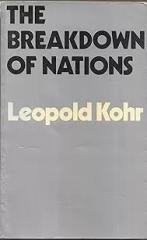
Kraj iluzija: Politika, ekonomija i kultura u kasnome modernizmu
The End of Illusions (2019) examines the disintegration of illusions about the West's continuous social progress. The book examines the transition from industrial to late modernism, marked by deindustrialization and crises such as the financial crisis of
Reckwitz identifies five key features of late modernism: a new class society, where a new highly skilled middle class dominates, while the traditional middle class and the precariat decline; a post-industrial economy focused on knowledge and services; a clash of culture and identity, where nationalism and cosmopolitanism polarize; exhaustion from the imperative of self-realization, which creates pressure and anxiety; and a crisis of liberalism, visible in the decline of trust in democracy and the market. These changes shatter the illusion of universal progress, replacing it with polarization and paradoxes – progress and discomfort are two sides of the same coin.
The book emphasizes that Croatia, due to its late entry into modernism after the breakup of Yugoslavia, is only just beginning to feel these tensions. Reckwitz’s clear, sociological approach offers a manual for understanding contemporary challenges, such as market regulation and migration, calling for confronting the fragility of social reality.
One copy is available





